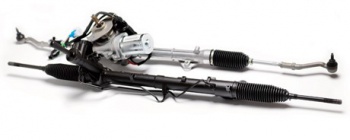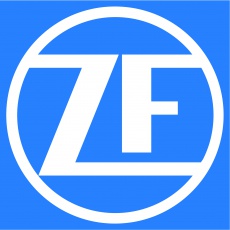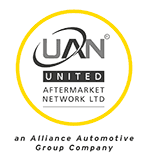
ZF Aftermarket offers a broad steering portfolio
ZF Aftermarket offers a broad product portfolio of steering parts in the aftermarket under the product brand TRW. With TRW steering racks, pumps and column drives fitted in one-in- three European vehicles, and a quarter of vehicles throughout the world, the aftermarket organization of the technology leader has an innate understanding of a large proportion of the rack and pinion steering system market place. Through innovative service, steering racks, pumps and column drives are remanufactured and offered to the customers, which supports to reduce costs as well as the impact on the environment.
ZF Aftermarket offers under the well-known product brand TRW a variety of steering parts in OE-quality (Original Equipment): conventional steering systems such as Manual Steering, Hydraulic Steering, and Advanced Steering Systems including EPHS, Column Drive Steering and Belt Drive Steering. ZF, with its division Active and Passive Safety Technology, is one of the leading suppliers of steering parts (columns, racks, and EPHS pumps) for passenger cars. ZF’s know-how ensures its capability in terms of technology and innovation for its remanufactured steering products available for the aftermarket. This expertise benefits the ZF Aftermarket organization by being able to sell the TRW branded steering parts, strategically strengthens the portfolio within the Aftermarket activities of the entire group.
"The strong OE heritage of our steering product range is a key factor in our development of aftermarket products. Steering parts play a major role in our Corner Module offer (braking, steering, and suspension). More over the steering system is one of the key equipments when coming to the development of autonomous driving capabilities. Technological expertise will impact this product range even more in the future", says Richard Adgey, Head of Product Management IAM/Services.
Environmentally friendly, favorably priced, and quick Remanufactured units make up more than ten percent of the German vehicle spare parts market – with the trend rising, even on an international scale. On the one hand, customers are expecting high quality at an ever decreasing cost. On the other hand, many new components are already equipped with electronics and virtually no suitable spare parts from volume production are available for older vehicles anymore.
With remanufactured components, manufacturers and users can contribute to better environmental protection. The impact is even much stronger than that of recycling, although the proportion of recyclable materials in new ZF products amounts to around 95 percent. When remanufacturing a used unit, 50 to 90 percent less material is required in comparison to the manufacture of a new product. At ZF, this corresponds to an annual saving of about 20 000 tons. And finally, with parts remanufacturing energy consumption and CO2 emissions decrease by up to 90 percent.
The steering parts of the TRW brand are remanufactured at the Frýdlant production site based in the Czech Republic. Launched in 2002, this activity has delivered an outstanding continuous growth over the past years. Through its remanufacturing program of steering columns, ZF offers an interesting alternative for its customers with a more attractive price than new parts (approx. – 35 percent). That enables the repairer to offer a cost-effective alternative to his customers. This range creates a real opportunity for the independent aftermarket, providing an option to increase turnover through reaching price sensitive customer groups.
As one of the leading manufacturers of original parts, ZF also has the necessary development, manufacturing, and process know-how for remanufacturing. The tools, processes, measurements, and inspections used in remanufacturing are generally equivalent to those of volume production: These include the quality and environmental standards ISO 9001 and ISO 14001 as well as customer-specific requirements. Close cooperation with Volume Production Development and Quality Assurance at ZF guarantees that the remanufactured parts comply with the latest technological standards: If the hardware or software of the original volume production product has undergone redevelopment in the meantime, these improvements will also be introduced in the remanufacturing


 Click here to open the navigation menu
Click here to open the navigation menu